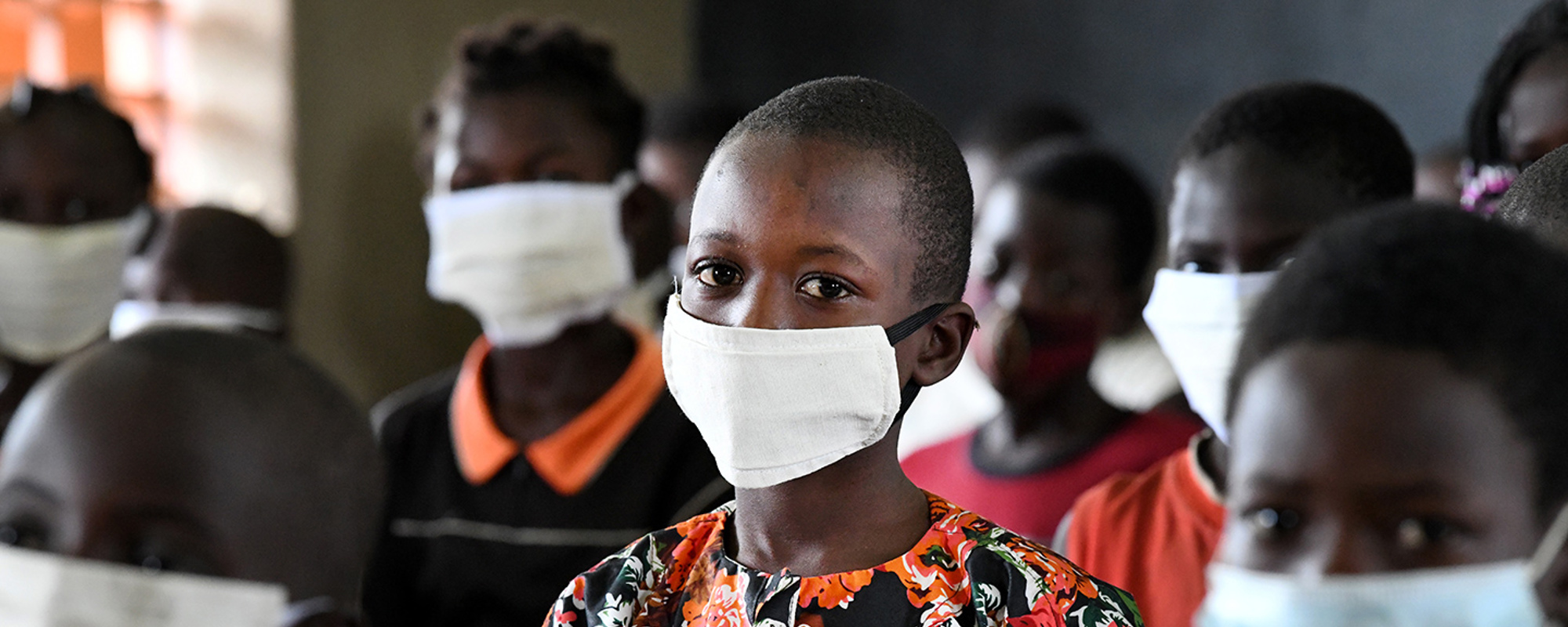

COVID-19 must transform the definition of global health security
The recent announcements that multiple new coronavirus vaccines are showing strong results provide hope that life will eventually return to normal and the catastrophic death toll will end – good news we all desperately need right now.
But despite this truly astonishing scientific achievement, the stark reality is that the COVID-19 pandemic is getting worse, with accelerating infections, and a weekly death toll of around 50,000. Even if vaccines are approved quickly, they will not be available in large volumes in countries where the Global Fund invests until late 2021 at best. It is therefore vital that the progress on vaccines is not used to justify backing off from current efforts to contain the pandemic and mitigate its devastating consequences on health systems and economies worldwide. On the contrary, we need to step up the global response. We can now see the light at the end of the tunnel; let’s get there as fast as we can and minimize the damage on the way.
At the current rate, COVID-19 is killing about the same number of people every month as HIV, tuberculosis and malaria combined. However, the death toll from these three diseases will have increased as a result of the knock-on impacts from the COVID-19 pandemic, due to lockdowns, resources diverted to the new virus, and interruptions to lifesaving services. Moreover, some of the countries that have so far been spared the worst of COVID-19 itself may be hardest hit by its economic consequences. No country is immune to the spiraling economic costs of the pandemic; prolonged economic shocks leave deep scars, which will have profound effects on people’s health in the years to come.
Right now, global leaders are quick to say that in the fight against COVID-19 we must leave no one behind, that we are only safe when everyone is safe. The test of this commitment will be when access to vaccines takes away the sense of urgency and fear in wealthier nations. Will we then see continued commitment to finish the fight? Or will the flow of resources dwindle as attention shifts to other matters?
Unfortunately, the global community’s track record is far from encouraging. While I do not want to diminish the commitment and generosity of so many donors, the reality is that in the fight against previous pandemics – HIV, TB and malaria – far too many people have been left behind. Once diseases no longer threaten those living in the wealthiest countries, they are reclassified as development or humanitarian issues, rather than being considered as global health security threats. That reclassification means they attract a fraction of the resources.
Take tuberculosis. Once the biggest killer in all the wealthiest countries in the world, TB is a disease we know how to prevent and cure. Yet it still kills about 1.4 million people a year, mainly the poorest and most marginalized. This year, COVID-19 and TB are likely to be neck and neck in the grim race to be the biggest infectious disease killers. Yet this is where the similarity ends.
Total global spending on TB prevention and treatment is US$6.5 billion; the figure for COVID-19 is several hundred times as much. The pipeline for new TB medicines for next year contains a handful of promising advances; the equivalent pipeline for COVID-19 contains hundreds of diagnostic, therapeutic and vaccine candidates. Perhaps most startling is the difference on data: On January 1, 2021, everyone with access to Google will be able to get a reasonably accurate picture of how many people died from COVID-19 in 2020; to get the same figure for TB, we must wait until October 2021, when WHO finalizes the laborious consolidation of country submissions.
This isn’t good enough. The idea that global health security only refers to prevention and protection against diseases that might kill people in rich countries is neither moral, sustainable nor practical. Will we allow COVID-19 become, like we did with HIV, TB and malaria, another lingering “residual pandemic” we care much less about because it only kills the poor? Or will we take COVID-19 as the catalyst to rethink what we mean by global health security?
Even if you set aside the inequity of our current approach to global health security, creating this false distinction between diseases we care about and those we don’t, hasn’t worked in the past and won’t work in the future. Political leaders in the poorest countries will not invest in preparedness against potential infectious disease threats when actual diseases are already killing their people. The capabilities and infrastructure we need to prevent future threats are largely the same as those we need to defeat existing diseases. Most low- and middle-income countries based their COVID-19 responses on the laboratory, disease surveillance, community networks and supply chains that were created to fight HIV, TB and malaria.
As we enter the next phase of the fight against COVID-19, we must guard against declaring victory too soon, and hold our political leaders to the commitment to leave no one behind. We must also seize this moment to raise our ambition, to see this not just as the fight against one particular pathogen, but as the catalyst to finish the unfinished fights against HIV, TB and malaria, and to strengthen our defenses against future infectious disease threats.
COVID-19 has taught us the massive costs of neglecting global health. Let’s grab the opportunity to realize the equally massive benefits from investing in keeping everyone safe from the deadliest infectious diseases.







